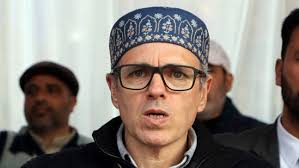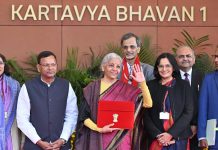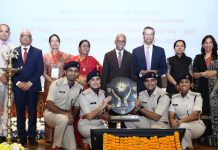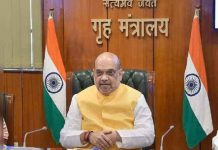The new reservation policy in Jammu & Kashmir has sparked a heated debate, with data revealing a stark regional disparity. With quotas overwhelmingly favouring Jammu over Kashmir, opposition leaders and student protesters are demanding urgent reforms. A report by Riyaz Wani

The issue of reservations has dominated the budget session of J&K Assembly, with opposition parties, except the BJP, aggressively raising the issue. The debate came to a head when in response to a question by the People’s Conference leader Sajjad Gani Lone, the government shared the data on the reservation benefits enjoyed by the people in Kashmir valley and the Jammu region.
The figures tabled in the Assembly showed all scheduled caste (SC) beneficiaries from Jammu, and not a single recipient from Kashmir. Similarly, 85.3% of those benefiting under the scheduled tribe (ST) category are from Jammu, and only 14.7% from the Valley. Ditto for economic weaker section (EWS) category: 92.3% of the beneficiaries are from Jammu and a mere 7.7% are from Kashmir. Jammu-based candidates also dominate across other categories, such as the Actual Line of Control (ALC) and International Border (IB).
The data shocked Kashmiri politicians, some of whom said that the disparity in terms of the distribution of the reservation benefits between the two regions was beyond what they had imagined it to be.
“This is a shocker regionally – loss due to reservation much higher than anticipated,” Lone tweeted. “Kashmir as region is far behind. The net loss of quotas to the Kashmiri speaking population is of a much higher scale than we had thought. The whole reservation concept is rigged against the Kashmiri-speaking population and against STs or EWSs living in Kashmir.”
This despite the fact that Kashmir valley comprises around 55% of J&K’s population, as per the 2011 census. Government jobs mean a lot for a region that has a 32% unemployment rate and the government sector is a major employer in absence of a robust industrial sector and limited unorganised private sector.
The elected government headed by Omar Abdullah has formed a cabinet sub-committee to take stock of the issue and address the imbalance. The committee has been given six months to complete its report.
The reservation policy has also been challenged in the J&K High Court. The petitioner, Zahoor Ahmad Bhat, who previously challenged abrogation of Article 370 in the Supreme Court, along with co-petitioners, argues that the 2024 amendments made by the Jammu & Kashmir Union Territory government are unconstitutional and violate principles of equity and fairness.
According to the petitioners, the amendments have restructured reservation percentages, reducing the open merit category from 57% to 33% and the Resident of Backward Areas (RBA) category from 20% to 10%. In contrast, reservations for Scheduled Tribes have been increased from 10% to 20%, social castes from 2% to 8%, the Area Line of Control from 3% to 4%, and physically handicapped candidates from 2% to 4%. New categories introduced include children of defense personnel (3%), police personnel (1%), and sports achievers (2%), among others.
The petition contends that these changes unfairly disadvantage open merit candidates, constituting “unwarranted discrimination” and violating the Indian Constitution. It argues that the amendments are harmful to the broader population of Jammu & Kashmir, which reportedly includes 70% open merit candidates and over 20% RBA candidates.
“The reservation policy is intended to uplift underprivileged classes in proportion to their population. However, this should not come at the expense of open merit and RBA category candidates, who represent nearly 80% of the population in Jammu & Kashmir. These changes violate the fundamental rights of the petitioners and other unemployed youth, and must be overturned,” the petition states.
Before the amendments, the Jammu & Kashmir Reservation Rules of 2005 allocated 57% of positions to open merit candidates and 43% to reserved categories. The petitioners note that open merit candidates—those not benefiting from any reservation—had traditionally secured the majority of government positions under the earlier framework.
Reservation issue has also been raised forcefully by the ruling party politician and Member of Parliament, Aga Ruhullah Mehdi. On December 23, Mehdi staged a peaceful protest outside J&K Chief Minister Omar Abdullah’s residence, calling for the rationalization of the new reservation policy in the union territory that has reduced the share of the open category students to just 30 percent. Ironically Ruhullah protested against his own government and in this, he was accompanied by the opposition parties, the PDP and the Awami Ittehad Party led by jailed Engineer Rashid. The PDP leaders like Waheed Para and Iltija Mufti were by the side of Ruhullah.
Ruhullah was also joined by students from different areas of Kashmir, who were seeking scrapping of the reservation policy
“We want a proportionate representation for all communities,” Ruhullah told the gathering at the time. “The government must ensure fairness and equality in its policies. The current system marginalizes many deserving groups,” Mehdi said, urging the government to revise the policy for a more inclusive and equitable approach.
Drastic reduction in quota to open merit category has hit the open merit category hard in both Jammu division and Kashmir Valley. More so, the valley, which doesn’t have the proportionate category classes. The reduction followed the Lieutenant Governor administration’s decision early last year to raise reservation for Paharis by 10 percent and that of the other tribes and the Other Backward Classes by 8 percent.
According to the 2011 census, 69% of J&K’s population falls under the general category, which includes those not classified under Scheduled Castes, Scheduled Tribes, and Other Backward Classes. But while reservations in the rest of the country have been capped at 50%, in J&K they have been fixed at 70 percent.
Where do we go from here? There is no easy answer to this question. Although Chief Minister Omar Abdullah heads a majority government and on this issue enjoys the support of the opposition barring the BJP, it may not be amenable to an easy solution. The BJP, which in the first place, gave these disproportionate reservations to underprivileged classes is likely to oppose it tooth and nail. The National Conference-led government is also likely to face a strong opposition in parts of Jammu dominated by these classes. On the other hand, inability to correct the regional imbalance in the distribution of job quotas will cost the party dearly in the Valley, its core constituency. The government could, however, be bailed out by a favourable judgement by J&K High Court in the case. But an unfavourable judgement will only further increase his problems.
“True, reservation policies are designed to uplift those in need, regardless of their geographical location, but the current arrangement is clearly skewed heavily in favor of Jammu at the cost of Kashmiri-speaking populations,” an editorial in a local daily read. “This is neither just nor in line with the fundamental ideals of reservation. This is a gross injustice.”











